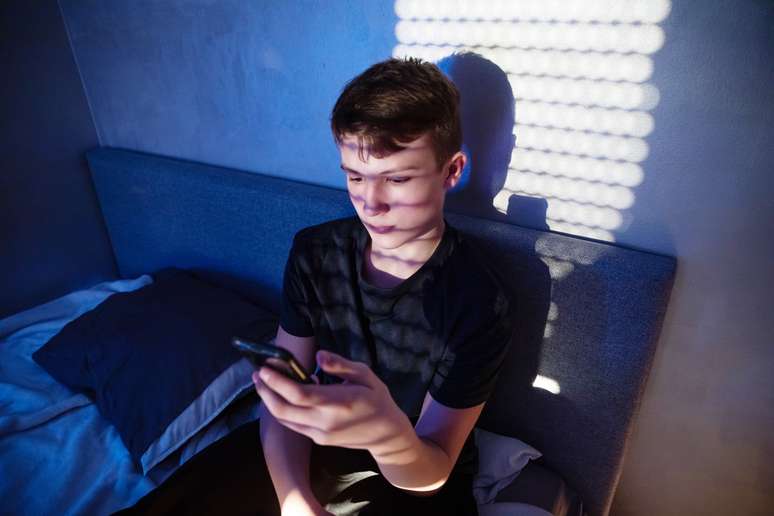Cyberbullying has become more prominent since the pandemic, as young people have increased their connection and screen time.
A new WHO (World Health Organization) study published this week shows that one in six children aged 11 to 15 say they have already experienced cyberbullying in 2022, meaning 17% of them have experienced online violence. In the previous edition of the same survey, in 2018, 13% had been victims of this form of internet harassment.
Nearly 280,000 children were assessed in 44 countries in Europe, Asia and Canada. In Brazil, which was not included in this assessment, this number could be even higher. A 2018 survey by the Ipsos Institute showed that the country ranks second in the world for cases of cyberbullying against children and adolescents, behind only India and ahead of third place, the United States. Here, 29% of parents reported that their children had already faced this situation.
According to the WHO, cyberbullying has grown more significantly since the pandemic, as young people increased their online time and screen time.
The data shows that there is an urgent need to discuss the best use of technologies and highlights the need to address issues such as harassment and violence on the Internet during the process of digital education for young people, both at home and at school.
Guys first
The report shows that the peak of virtual bullying occurs at 11 years of age for boys and 13 for girls, which reinforces the importance of parents and teachers anticipating this discussion, especially before children and students start using social networks and participate in message exchange applications.
As young people spend more and more time in front of screens, even occasional incidents of online harassment and violence can have a profound impact on mental health. Hence the importance of this early intervention. In this sense, discussing and explaining the reasons for care and concerns before proposing limits and bans is a strategy that could work better.
Virtual bullying can have important impacts on the mental health of young people, leading to a worsening of general well-being and quality of life, exposing young people to greater risks of anxiety disorders, panic attacks, worsening of self-esteem, image body, eating disorders, depression, self-harm and suicide. Girls, due to social pressures and the increased time they spend on social media, may feel this impact even more intensely.
It is important to remember that in January 2024, President Luiz Inácio Lula da Silva approved Law 14.811, which included the crimes of bullying and cyberbullying in the penal code.
Florida bans underage networks
Another piece of news this week directly related to the lives of young people on the Internet comes from Florida, in the United States, the American state that was the first to effectively ban children under 14 from having social media accounts.
It is worth remembering that some networks such as TikTok, for example, already prohibit access to children under 13 and have a series of parental control policies. Despite this, it is not very difficult for young people to create a profile with a fake date of birth and continue browsing apps and networks.
The Florida bill, considered harsh, was enacted in an attempt to increase safety on the platforms and protect the mental health of young people. Under the new law, social networks cannot grant accounts to children under 14, as well as having to close accounts they know or believe belong to minors. And, even for young people under 16, it is required that accounts are created only after the express authorization of their parents.

4 signs your child is suffering from mental health problems and how to help them
The law is only part of the process
There may be a legal battle ahead, as the law could interfere with young people’s right to freely seek information and their freedom of expression. In recent months, less restrictive laws in other American states have faced major setbacks in attempts to implement them. Florida law still requires online pornography sites to verify age so they do not allow minors access.
Greater regulation of access to social networks can have a positive impact on reducing cyberbullying, especially among younger people, who may have fewer emotional resources to deal with so many external pressures. But without ongoing work on digital education at home and at school, the laws may have only a modest outcome.
It is essential to involve young people in the discussion so that they can actively participate in the process, recognizing this form of bullying, combating harassment and not committing violence against their peers. Creating communication channels with parents and teachers is also a strategy that must be enabled and guaranteed to give young people a voice and reverse this scenario. We go together?
*Jairo Bouer is a psychiatrist and writes weekly for Terra Você.
Source: Terra
Ben Stock is a lifestyle journalist and author at Gossipify. He writes about topics such as health, wellness, travel, food and home decor. He provides practical advice and inspiration to improve well-being, keeps readers up to date with latest lifestyle news and trends, known for his engaging writing style, in-depth analysis and unique perspectives.








